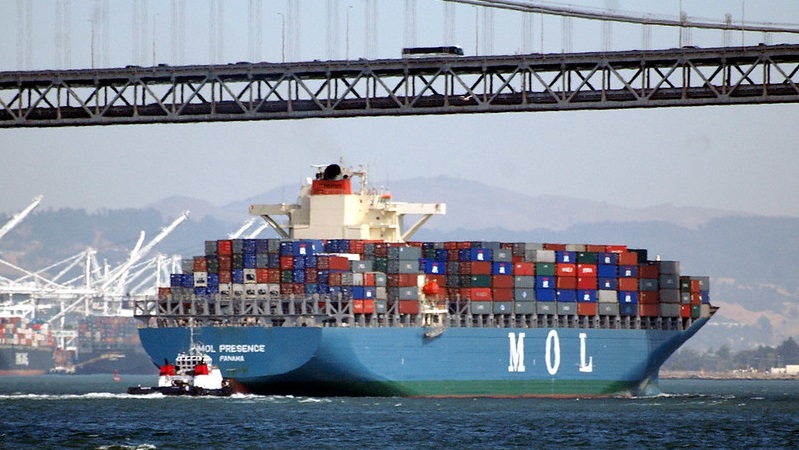The US’s treasury secretary would not commit to backing a shipping tax and the US was not on a list of 22 countries who support the measure.
Government negotiators gather in London are deciding whether to push forward a global levy on emissions from the shipping sector to fund climate action, but the US has so far declined its support.
When asked about the tax during a press conference in Paris on Friday, US treasury secretary Janet Yellen said it was a “very constructive suggestion” and “something the United States will look at”.
But the US was not among the 22 countries who put their names to a statement backing the idea at the Paris summit.
A group of Pacific islands and others have been pushing for a levy for several years at the UN shipping agency, known as the International Maritime Organization (IMO).
Public banks agree to check investments against countries’ climate plans
Over the next two weeks, government negotiators are meeting at the IMO’s London headquarters to decide whether to include a levy on shipping emissions in their list of measures to respond to climate change.
Most of the world’s products are moved abroad by ship, often using very polluting bunker fuels. The sector is responsible for around 3% of the world’s emissions, roughly the same as Germany.
The group of nations signing up to support a levy in Paris includes the European Union, several small island states, Vietnam, Kenya and major shipbuilder South Korea. More countries have indicated support in the IMO but were not at the meeting in Paris.
The US government has not explained its stance, either in public or at the behind-closed-door IMO talks this week. The State Department did not reply to Climate Home’s request for comment.
Unfinished paperwork is kneecapping solar’s potential in China
One delegate to the IMO talks, from a nation that supports the levy, told Climate Home the US was “still on the fence”.
E3G analyst Ronan Palmer said the US was not opposed to a tax but, with presidential elections next November, it “is just not going to move for it’s own political reasons”.
“If Biden gets up and says we need this tax for climate, imagine what [leading Republican presidential candidate Ron] De Santis is going to say,” Palmer said.
Aoife O’Leary, head of the shipping think tank Opportunity Green, said US concerns that a tax would have to be put to Congress were unfounded. The US’s domestic law to prevent pollution from ships, signed in 1980, allows amendments to the international convention which governs shipping emissions without approval from Congress, she said.
World Bank to suspend debt repayments for disaster-hit countries
As a major polluter, O’Leary added, “the US has a large moral responsibility to support this levy”.
Delaine McCullough, shipping lead at US-based campaign group Ocean Conser
Read More

